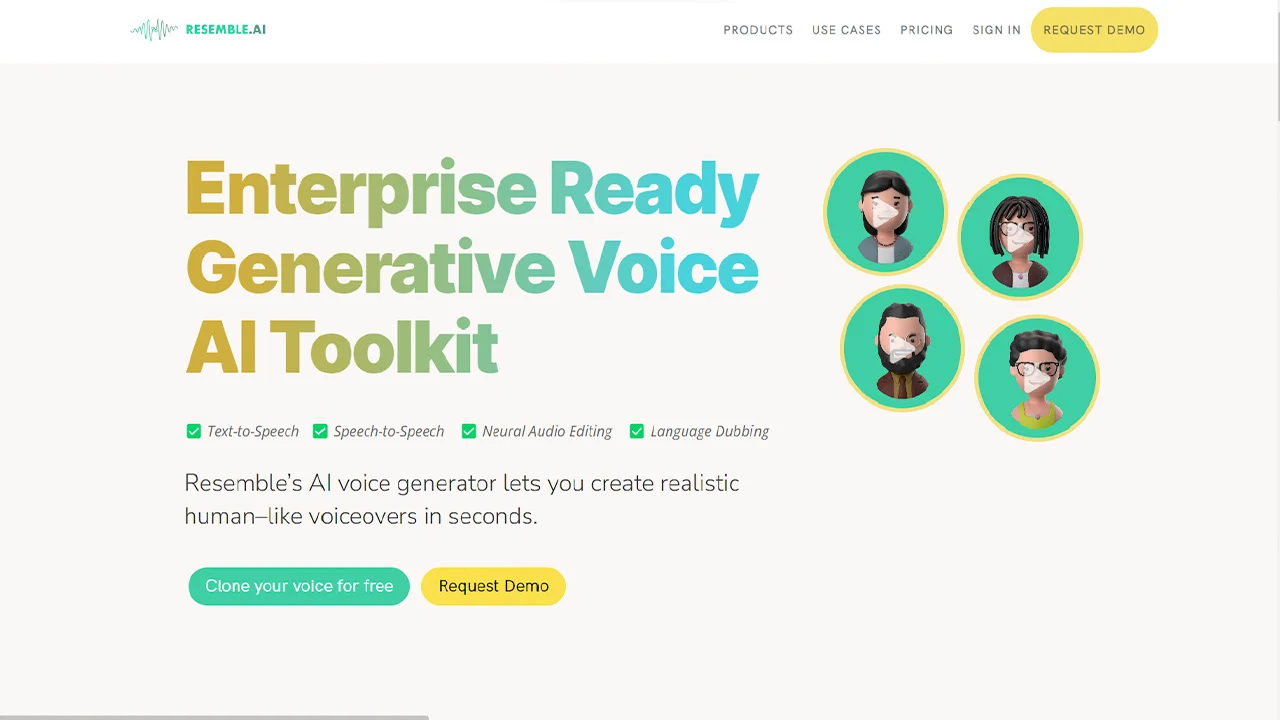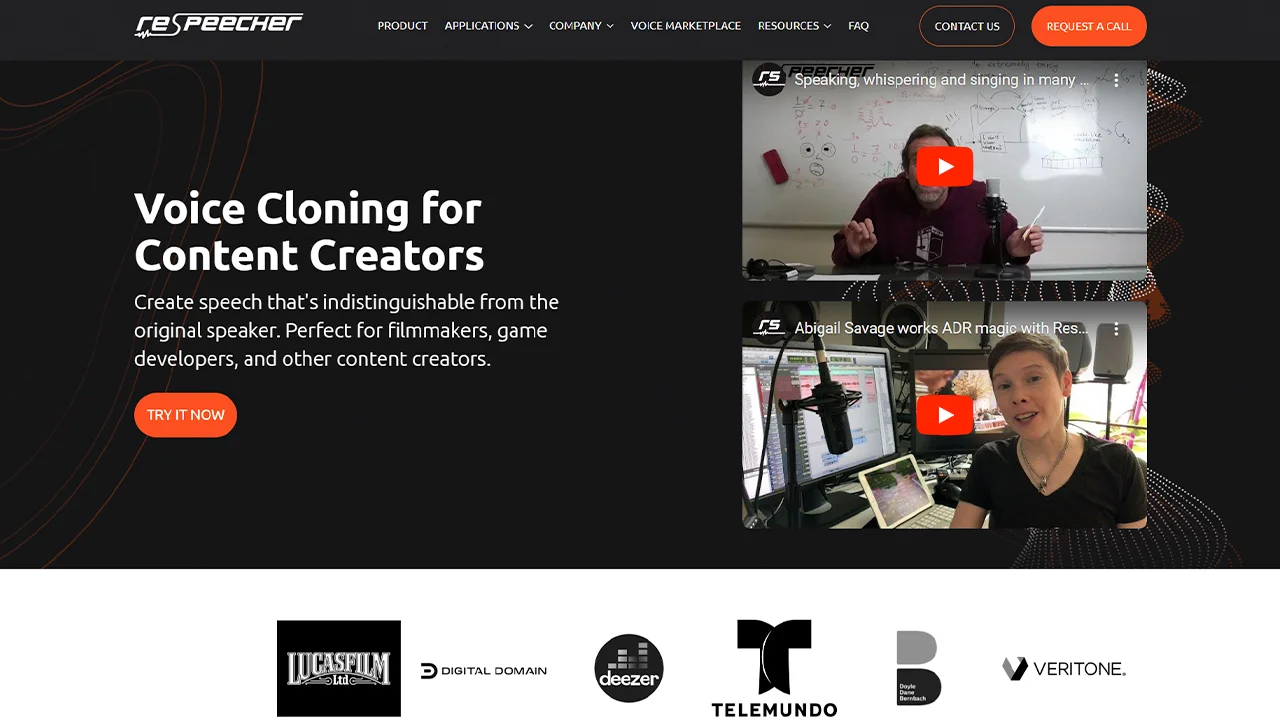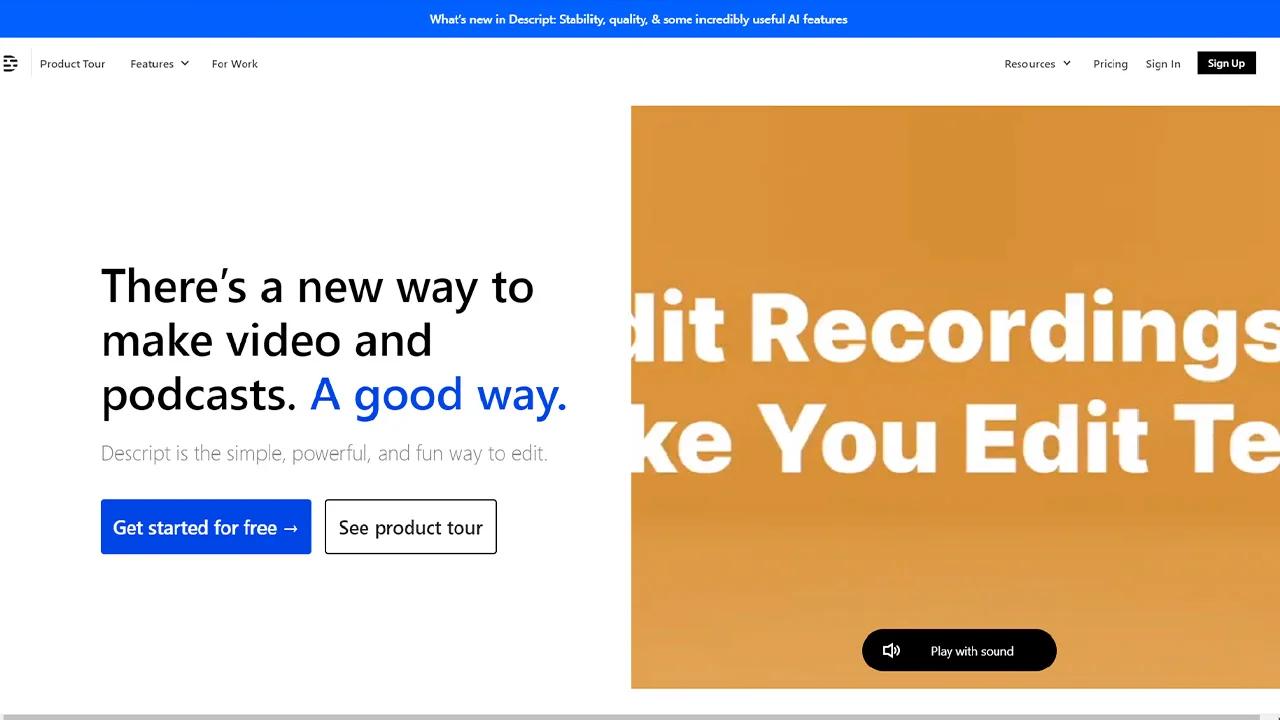The top 5 deepfake voice generators
Deepfakes have been a significant technological development on the rise in recent years. Most people know them as face-swapping, artificially generated images and videos that capture the likeness of a person and place them on another.
More recently, they’ve become popular as synthetic voices that imitate the voice of an actual human.
Both cases are used for numerous beneficial and entertainment purposes. However, this article will focus on voice cloning and introduce some of the best tools for AI-generated voice synthesis and deepfake technology.
How does voice cloning work?
Voice cloning, also known as deepfake or synthetic voices, creates cloned voices using AI technology and machine learning algorithms. It developed due to advancements in artificial intelligence (AI), especially deep learning.
To create a good-quality cloned voice, you need a high-end computer with powerful graphics cards and computing power in the cloud. This makes the process faster. However, you must also have enough data, that is, recordings of the target person’s voice.
By feeding the AI enough of this data, you can produce authentic voices that will say anything you type by using text to speech technology, or anything your say, by using speech-to-speech technology.
Now, artificial intelligence can clone a human voice based on just an hour of speech, but the larger the voice input, the easier it is for the program to do its work.
The five best tools for deepfake speech synthesis and cloning
Voice changer apps have been available as Android apps in the Google Play Store and iOS apps in Apple’s App Store for some time. You can replicate the voice of whoever you want by simply downloading an app on your phone.
Initially, you needed a certain skill level to achieve good deepfakes, so many companies offered to make them for you. However, nowadays, many tools allow you to make deepfakes yourself. Here are the five best tools you can use to create realistic voices of other people.
Resemble.ai

Resemble.ai is an excellent text to speech and deepfake audio software if you want to recreate a custom voice with little data. It only needs three minutes to get started, but the more you feed the AI, the better the speech quality.
It’s very user-friendly and works by uploading an audio clip of someone else’s or your own voice or by speaking directly into the sampler. It also works with multiple languages and has the ability to change intonation and add an emotional aspect to the output.
The service is free for two minutes before you have to pay. With a monthly subscription, you can upload up to 100,000 characters per month.
The downsides are that the service is intended for businesses in the entertainment industry, so there’s only one type of plan for personal use.
Respeecher

Respeecher is a newer deepfaking software that promises natural-sounding voices. It’s widely used by film and TV producers, video game developers, voice actors, podcasts and audiobooks, advertising, and voiceovers. In the future, it plans to have practical applications in healthcare.
With Respeecher, you can capture every emotion, bring back the voice of someone who passed away, and even recreate children’s voices. In addition, you can record in different languages and localize your voice to any region with different accents.
Respeecher offers a three-day free trial, during which you can convert up to 15 minutes in over 100 voices.
FakeYou

FakeYou is a speech synthesis tool that uses AI technology and deep learning techniques like neural networks. FakeYou is primarily a text to speech service, but its customization options allow you to generate a speech to your liking or needs.
If you want a ready-made voice, there are almost 3,000 voices, including famous DC comic book characters. Due to its extensive speech model training, the output is very natural and realistic. You can use FakeYou for free without registration, but the website also offers three pricing plans with more features.
Real-Time Voice Cloning
Real-Time Voice Cloning is an open-source project hosted by GitHub. It’s a deep learning tool that needs only five seconds of input audio to make a clone of your voice.
There’s no web-based version, but the tool is free to install and supports both Windows and Linux. Another potential downside is that it isn’t user-friendly for those who don’t possess technical knowledge.
Descript

Descript is mainly used for editing podcasts and social media videos, but it also features a voice cloning tool called Overdub. It’s more demanding as it requires at least 30 minutes of voice recording you provide by reading the script prepared by the tool. But after the tool analyzes your voice, you’ll be able to type in any text you want the AI to read and edit it without re-recording.
In addition, you can edit videos, make use of multi-track audio editing, screen record, create clips, publish and embed anywhere, and transcribe with outstanding accuracy and speed.
Along with one-hour transcription and unlimited projects per month, you have a 1,000-word limit for Overdub voice for free. If you need more words for Overdub voice and want to unlock even more features, you can choose one of Descript’s two pricing plans.
Speechify—A high-quality text to speech tool
To create custom and lifelike voices, try text to speech software like Speechify and Speechify’s Voice Over Generator tool.
Speechify is one of the best text to speech services available for Chrome, Mac, Android, and iOS devices. With Speechify, you can turn any text into natural-sounding voices and make voiceovers for your videos.
In addition, Speechify helps you read faster and makes reading struggles a thing of the past. You can listen to web pages, Microsoft Word docs, PDF files, emails, and everything in between so long as it has text on it.
You can try Speechify today by going to the Chrome web store, Google Play, or Apple Store and downloading the app for free.
FAQ
Which is the best AI voice generator?
Some of the best AI voice generators are Speechify, Murf, Synthesys, and Listnr.
What is the best free deepfake software?
Multiple deepfake software offers free trials or limited free options. Some of the best ones are FakeYou and Descript.
What is the best AI voice generator for YouTube?
There are many suitable AI voice generators that can find their application on YouTube. However, Speechify is arguably the best one on the market. It uses AI technology to create high-quality natural-sounding voices, which can be converted into WAV and MP3 audio files and make a great YouTube voiceover.
How much does text to speech software cost?
The cost of a text to speech software will vary by the company. Many TTS companies offer a free trial, so you can decide whether it’s worth the money.
Can voices be deepfaked?
There are various tools and apps that offer deepfake technology. You can turn any other speech or text into that voice by providing a sample of a person’s voice and letting the AI voice generator analyze it. Depending on which tool you use, the length of the sample and the time it takes the AI to analyze it will vary.





